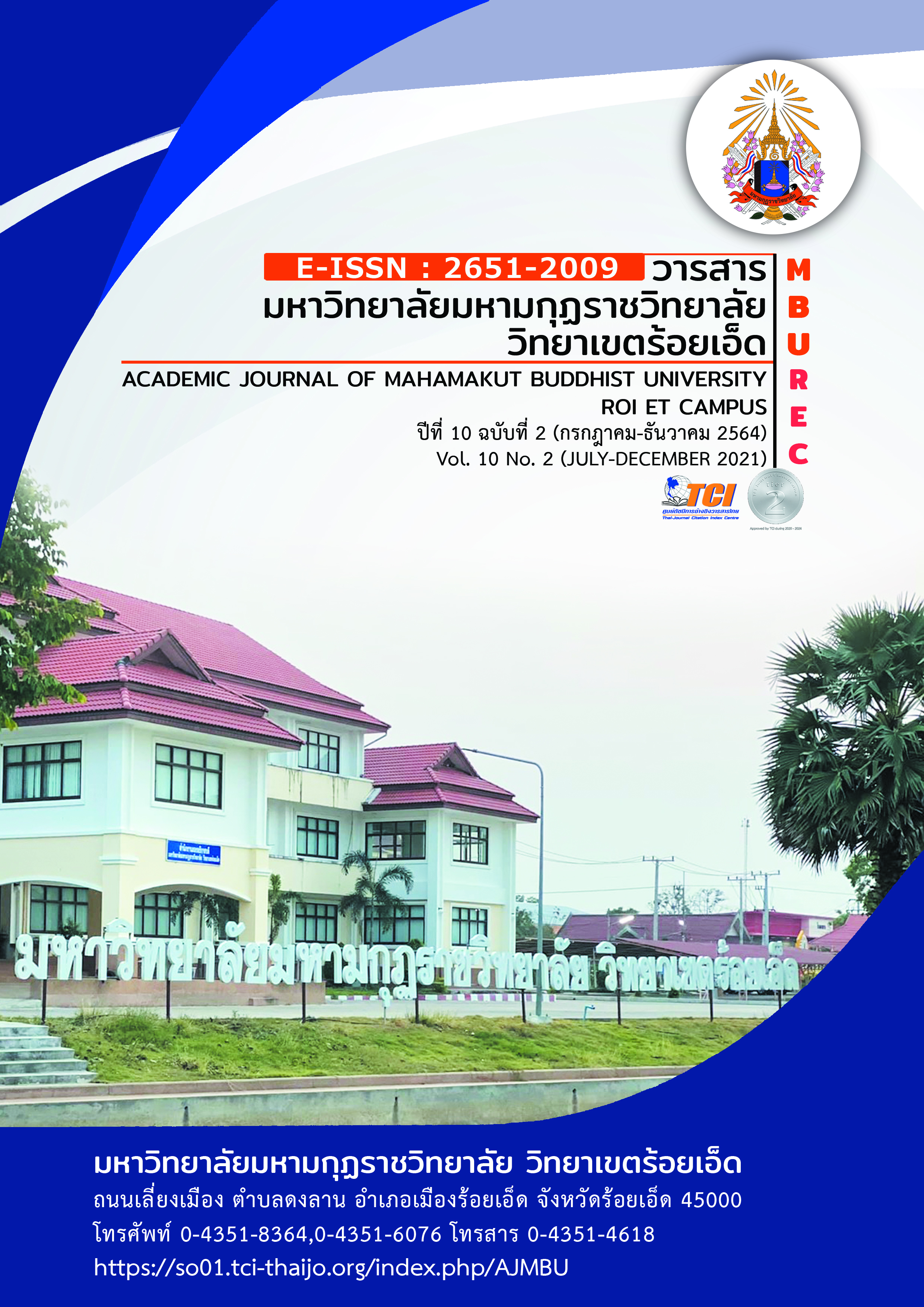The Role of Political Leaders in Civil Society: A Case Study of Pibhop Dhongchai
Main Article Content
Abstract
The objectives of the research article were 1) to examine the foundation, processes, mechanisms, and procedures of political movement among civil society leaders in Thailand. 2. To explore the role of Pibhop Dhongchai as a political leader in civil society. Qualitative research methods were utilised to collect data, including documentary research and in-depth interviews with key informants. A total of eight key informants included the experts and senior experts who were closely associated with Pibhop Dhongchai in both direct and vicarious contact. Content analysis was then employed to analyse and synthesise collected data to report research findings and achieve the objectives.
The results of the research showed that: 1. it was found that thefoundation of political movement among civil society leaders in Thailand primarily stemmed from social inequality and stratification. The inequality existed not only between different groups of people but also between people and the public sector. Furthermore, the movement resulted from the ideology that challenged and fought against the abuse of power. 2. It was usually led by civil society leaders who devoted themselves to social movement. In terms of the process of political movement among civil society leaders in Thailand, there were five main processes including; 1) problem identification and cause analysis process, 2) policy planning and making process to solve the problems, 3) practical problem-solving process, 4) mutual benefiting process from cooperation, and 5) goal achievement process. In addition, the mechanisms of political movement among civil society leaders consisted of the use of situation as the indicator, the utilization of multimedia platforms and the press for communication, and the foundation of civil society networks to drive political movement. The procedures of political movement among civil society leaders were comprised of four major procedures, including 1) public participation in politics, 2) people’s movement, 3) tactical movement to put pressure on the government to seriously solve the problems, and 4) peace process. Furthermore, the role of Pibhop Dhongchai was examined as a representative of civil society leaders in Thailand. It was illustrated that his role reflected the characteristics of civil society leaders as follows; 1) focusing on ideology and equality and broadening opportunities for educational advancement through philosophy and virtue, 2) focusing on public participation especially long-lived devotion to social contribution until being a civil society leader, 3) being equipped with well-founded knowledge to analyze the problems with the principles and strategies in social movement as accumulated from extensive experience and knowledge with the attachment to the ideology, 4) being a person who contributed to public interests with the most outstanding role that focused on collective public interests, and 5) being a person who took action. These characteristics were reflected in the role of his life as a thinker, an academic, a social activist, and a critic who criticized social phenomena.
Article Details
References
จักรีศรี จารุเมธีญาณ และพระถนัด วฑฺฒโน. (2560). ภาวะผู้นำกับการพัฒนาชุมชน. วารสารสันติศึกษาปริทรรศน์ มจร. 6(พิเศษ). 528-538.
นพพงษ์ บุญจิตราดุลย์. (2551). โน้ตย่อผู้บริหาร. พิมพ์ครั้งที่ 3. เชียงใหม่ : Orange Group Tactics Design.
รุ้งนภา ยรรยงเกษมสุข. (2560). ความเป็นพลเมืองของผู้นำองค์กรภาคประชาสังคม. วารสารเศรษฐศาสตร์การเมืองบูรพา. 5(2). 1-26.
วิเชียร บุราณรักษ์. (2548). ขบวนการเคลื่อนไหวทางการเมืองภาคประชาชน ศึกษากรณี : กลุ่มอนุรักษ์สิ่งแวดล้อมจังหวัดอุดรธานี. เชียงใหม่ : มหาวิทยาลัยเชียงใหม่.
ศาสตรินตร์ ตันสุน.(2558). การศึกษาการเคลื่อนไหวทางสังคมของกลุ่มผู้ชุมนุม “กปปส.”
ด้วยแนวคิดพื้นที่สาธารณะและภาคประชาสังคม. วารสารรัฐศาสตร์ปริทรรศน์. 2(1). 82-96.
สถาพร ปิ่นเจริญ. (2554). ภาวะผู้นำกับการจัดการ(Leadership and Management). กรุงเทพมหานคร : จามจุรีโปรดักท์.
สุลักษณ์ ศิวรักษ์. (2548). การมีสถาบันกษัตริย์ถูกกว่ามีประธานาธิบดี. วารสารฟ้าเดียวกัน. 3(4). 47-52.
เสริมศักดิ์ วิศาลาภรณ์. (2536). ภาวะผู้นำ. นนทบุรี : มหาวิทยาลัยสุโขทัยธรรมาธิราช.
อัญมณี วัฒนรัตน์. (2556). ภาวะผู้นำแบบพัฒนาการจัดการความสุขแบบเป็น-อยู่-คือ และความสุขในการทำงานกรณีศึกษา: องค์การสร้างสุข. วิทยานิพนธ์วิทยาศาสตรมหาบัณฑิต สาขาวิชา การพัฒนาทรัพยากรมนุษย์และองค์การ. คณะพัฒนาทรัพยากรมนุษย์ : สถาบันบัณฑิตพัฒนบริหารศาสตร์.
อานันท์ ปันยารชุน. (2540). วิสัยทัศน์กว้างไกลปฏิบัติได้ผลจริงในสงวน. กรุงเทพมหานคร : พิมไทย.


